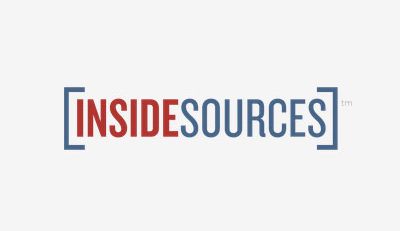Doug Kelly, CEO of the American Edge Project
The global race for technological leadership isn’t just about processors and algorithms — it’s a high-stakes competition. At play is which fundamental values will shape the world for generations to come. And the outcome is far from certain.
On one side is the United States, which champions the virtues of democracy, freedom and openness that have long fueled innovation and progress. On the other hand, China is increasingly assertive, led by an authoritarian regime that is determined to leverage technology for social control and geopolitical coercion.
China’s ambitions are clear: leverage technology to supplant the United States as the preeminent global superpower and gain economic and national security superiority over the Western world.
Beijing is pouring a staggering $1.4 trillion into boosting its technological capabilities while simultaneously waging a relentless campaign of technology and intellectual property theft against the West to achieve that goal. China also seeks to make the world increasingly dependent on its technology to give it economic and geopolitical power.
This value divide is not mere rhetoric — it has devastating real-world consequences. China’s export of invasive surveillance tools has empowered other authoritarian regimes to monitor and suppress their own citizens, creating a growing wave of digital authoritarianism. Beijing’s support for Russia’s brutal invasion of Ukraine, as well as its egregious human rights abuses against the Uyghurs, further illustrate the Chinese Communist Party’s callous disregard for universal freedoms.
And the threat extends far beyond China’s borders. Consider just three recent examples that highlight this values chasm:
—Cyberattacks and Hacking: China’s cyberattacks on U.S. infrastructure and its “friendship without limits” partnership with Russia stand in stark opposition to American principles regarding technology and societal norms. By launching relentless hacking efforts, China targets critical U.S. utilities and healthcare systems, posing a grave risk of widespread disruptions, particularly affecting vulnerable populations. Simultaneously, China’s supply of dual-use technologies to Russia has killed or displaced thousands of innocent civilians, underscoring the stark divergence in values between China and the United States.
—Fentanyl Crisis: A House of Representatives report accuses China of fueling America’s deadly fentanyl crisis by subsidizing the export of precursor chemicals used to manufacture the synthetic opioid. China’s actions not only add an addictive and deadly substance to every community but also reveal a callous disregard for lives. The report criticizes China for incentivizing companies that export these harmful substances and calls for stronger international law enforcement cooperation and enhanced sanctions to curb the trafficking of fentanyl components.
—Predatory Economic Practices: China’s practice of globally dumping state-subsidized advanced technology products, including electric vehicles, aims to decimate manufacturing bases in other countries, eliminate jobs and create a world increasingly dependent on China-based suppliers.
To win the tech race and ensure a future built on American and Western values, the United States and its allies must remain united. That means acting together to check China’s ambitions, bolster our defenses against its cyberattacks, and prevent the Chinese Communist Party from acquiring strategic technologies such as advanced microchips. Equally important is adopting policies that accelerate American innovation by unleashing our private sector powerhouses.
It is crucial that America remains the global leader in artificial intelligence, quantum computing, ultra-small microchips and robust cybersecurity infrastructure is crucial. The world looks to us for leadership, not just in technological prowess but also in upholding the values that have fostered innovation and progress for centuries. This is a race we cannot afford to lose.
